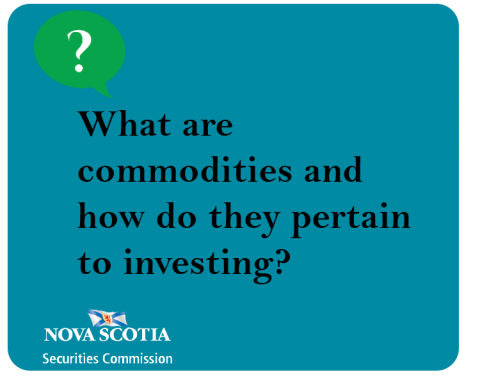Submitted by nsscadmin on

Commodities are basic goods that are in high demand across the globe. They are generally uniform in quality and utility regardless of their source. Think of it this way. Wheat is a commodity. The last time you bought a large bag of flour at the grocery store did you think about where and what kind of wheat was sourced to make your flour? Chances are the answer is no. The wheat (commodity) used to make the flour was likely purchased in a large quantity from numerous sources of uniform quality.
Commodities are differentiated as both hard and soft. Hard commodities are obtained through mining and drilling and include metals and minerals such as gold, copper, and natural resources such as oil and gas. Soft commodities are grown or ranched and include corn, wheat, soy, cattle, or pork bellies (aka bacon).
The price of commodities can be quite volatile based on supply and demand. For example, if bad weather wipes out a majority of the wheat crop, it would lower supply and potentially increase prices. A mild winter could lower demand of heating oil and subsequently lower the price of oil.
Now that you understand what commodities are, how do they pertain to investing? You can invest in commodities in four ways:
1. You can invest directly in the commodity itself
2. You can invest in the derivatives market and future contracts in the commodity
3. You can invest in ETFs that are invested specifically in the commodity
4. You can invest in shares in companies that produce the commodity
Investing in the commodity itself can be difficult. You can easily invest in something like gold by purchasing bars or coins, but investing directly in oil may be difficult unless you have the capacity to store barrels of oil.
We explained derivatives and futures contracts in a previous blog post, but we’ll briefly explain them again here. A futures contract is an agreement to buy or sell an asset at a fixed price at a future date. For example, you could buy a certain amount of a commodity and under a futures contract agree to sell that commodity later at a set price. If the commodity is valued lower or higher than the set price at that date the investor will gain or lose money on the investment.
There are a number of ETFs that focus on certain commodities and many companies that produce commodities are public companies in which an investor can purchase shares. If you are thinking about purchasing a commodity-based ETF, or investing in a commodity company, always do your research to make sure it is a suitable fit for your portfolio and your financial goals.
